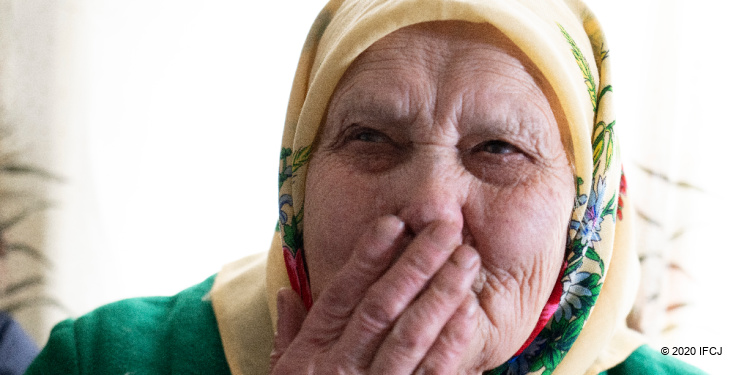We Should Never Give Up
Yael Eckstein | August 21, 2023

In those days Hezekiah became ill and was at the point of death. The prophet Isaiah, son of Amoz, went to him and said, “This is what the LORD says: Put your house in order, because you are going to die; you will not recover.” — 2 Kings 20:1
Prayer in Judaism is defined as “the work of the heart,” which profoundly changes the nature of prayer from one of entreating God to an act that transforms who we are—not what God does. These devotions focus on different facets of prayer and what lessons we can learn about the power of our prayers.
When King Hezekiah was on his deathbed, Isaiah the prophet came bearing terrible news—Hezekiah was going to die soon. Upon hearing these words, Hezekiah cried out and “wept bitterly,” begging God to remember his faithfulness and good deeds.
Why did Hezekiah even think to pray for God’s mercy? After all, Isaiah himself had prophesied his end; this wasn’t speculation, it was certain.
The Jewish sages teach that prophecies of good things are final, while prophecies for bad things can be overturned through prayer and repentance. And, indeed, God heard Hezekiah’s prayers and granted him fifteen more years to live.
While we no longer live in prophetic times, this story reminds us that we should never give up hope. No matter how bleak things seem, we can always change our ways and pray to God, and in doing so, we may be able to change our fate.
We Should Never Give Up
However, perhaps more important than the actual outcome of our prayers is the idea of becoming people who pray. The verse first tells us that Hezekiah prayed, and only afterward shares the content of his prayers. This shows us that his prayer response was immediate, natural, and instinctual. When one of the greatest prophets of all time told him the worst news he could imagine, he didn’t even flinch; he simply prayed.
How do we respond when times are tough? Do we get angry, depressed, and hopeless? Do we call our partner or friend for support? Do we try to solve the problem ourselves?
While all these responses are justified and healthy, perhaps the one that matters most is missing. We need to retrain ourselves to be like Hezekiah and immediately turn to God in prayer.
Your Turn:
Next time you find yourself in a hopeless situation, find hope. Turn to God for help, and never give up!
